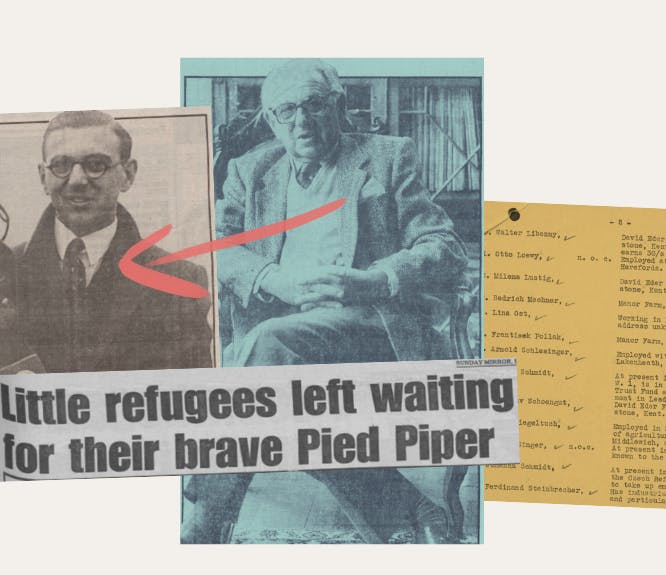My grandfather's emotional return to the D-Day beaches
5-6 minute read
By Alex Cox | January 11, 2021
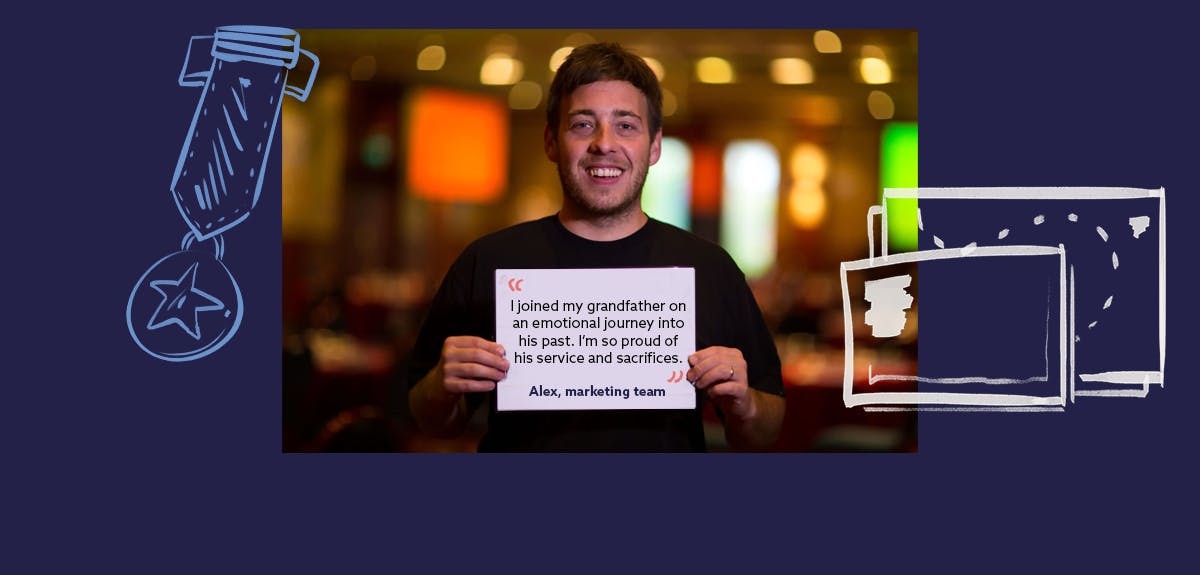
Findmypast's Alex Cox shares his grandfather's experiences of the D-Day Landings and his first return to Normandy since the Second World War.
When people ask"who is your hero?" my answer is always the same; my grandfather Arthur Raymond Wilton. Ray, as he liked to be known, was an incredible man who was loved by many and while I was fortunate to share a very close relationship with him, for years much of his early life remained a mystery to me.
I knew he had fought in the Second World War but, as with many members of that generation, he never spoke about it and would try his best to avoid the subject whenever it came up. This all changed in 2013 when I started working for Findmypast. One of the first things I learned was how important it was to capture the memories of older relatives before they are gone forever and this made me more determined than ever to hear his story in full.
After much prodding, I was surprised to learn that he was actually a veteran of D-Day and that he had carried the memories of that day with him ever since, not even sharing them with his wife or my mother.
I asked if he would allow me to record an interview with him and at first, he was reluctant. "Why?" he asked, "I didn't do anything special so no need for all this fuss", but eventually I was even able to convince him to appear in a video for our sister site, Genes Reunited.
On June 6, 1944, then only 19 years old, Ray was on board a motor torpedo boat guiding the first wave of troops onto Gold Beach in Arromanches, Normandy.
A month after the video was made, and a full 69 years after the D Day landings, he returned to the beaches of Normandy for the first time since the war. The trip was funded by the UK National Lottery run charity Heroes Return and I had the incredible privilege of being able to join him.
Originally from Prescot in Lancashire, Ray was working as a technical engineer when he decided to register as a reserve in the Royal Navy in 1942. "I was raring to go" he said;
""two of my mates had already joined, so in 1943 when I hadn't received my call up I just went down and volunteered. I was eager to get on and do my bit.""
After training as a telegraphist, he found himself serving on motor torpedo boat patrols in the Channel, looking out for German convoys and U boats. He described it to me as being;
""more like a pirate ship really, it was a little boat and we all lived together, it was very informal.""
He continued:
""We were all ready for D-Day which was originally planned for the 5 June, but the weather turned awful so we were sent out to make sure that everyone knew that the operation would be delayed. We caught an American ship quite near the French coast and called out to them 'Get back. We've been delayed!' Then, after that, we saw another boat full of tanks and we sent them back too.""
The details in his memories from the time were incredible.
""We also found the body of an American airman floating in a life jacket. He was very badly decomposed so we took his dog tag and then slipped off his jacket to let him sink. I later took the tag to the American depot so at least someone would know what had happened and could tell his family.""
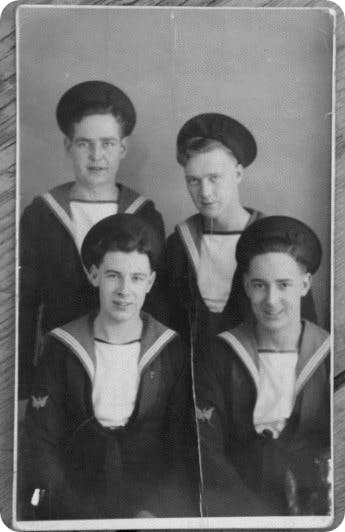
Ray (bottom right) and his Navy pals in 1943.
On June 5, 1944, he and thousands of others sailed overnight through very rough waters to take part in landings scheduled for 7:30 am on Gold Beach. He remembered;
""The troops were put onto landing crafts about six miles out. Our job was to escort the landing crafts through the German mines and up onto the beach. It was an exceptionally high tide and it covered all the beach obstacles, iron fences with explosives. To make matters worse we were also under heavy shell and mortar fire. Quite a number of the crafts came to grief and there were lots of men struggling in the sea. You couldn't help them. We were constantly being pushed from behind and we just had to go on. I can still see all those lads in the water. It was very sad, very sad.""
The harrowing story continued:
""We got the first wave through and then had to pull back to guide in the second. You could hardly see the sea for ships. There were 138 warships spread along all the beaches. The Germans were positioned behind French holiday homes along the front and they put up a very strong resistance with mortars and machine guns. We were unscathed, not a bullet. But the poor bloody infantry couldn't pull back.""
Returning after all this time was a very emotional experience and something he had always wanted to do. In his own words, it would allow him to;
""say a final thank you and goodbye to all those young lads who never came home.""
Gold Beach saw some of the heaviest casualties suffered by British troops while storming the tough defenses at Asnelles.
""Standing on the sand you could see just how little cover there was for the tired, seasick troops who waded out of the water straight into German machine gun and mortar fire. It was a sobering experience. We walked in silence for about half an hour as my Grandfather took it all in before we left him to say his final thank you and goodbye.""
We ended the trip with a visit to the Bayeux War Cemetery, the largest Commonwealth war cemetery in Normandy where the dead of Gold and Sword beaches are buried. Seeing the endless, immaculate lines of white stone had the greatest impact of all. Every single one represented a life cut short, young men killed in the prime of their lives who left behind mothers, fathers, brothers, sisters, wives, sweethearts, and children.
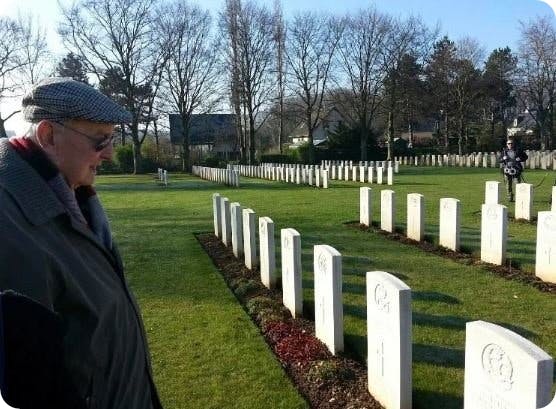
Ray paying his respects at Bayeux Cemetery.
It was the ages inscribed on the gravestones that were truly heartbreaking. The vast majority were between 18 and 20 years old, very few appeared to be over the age of 25.
My grandfather sadly passed away in 2015 but was fortunate to have had a further 71 years of life after the war. During that time he had a successful career, a happy marriage and was able to watch his children and grandchildren grow into adulthood. All things most of these young men never got to experience.
Accompanying him on his return to Normandy was an incredible experience filled with many emotional moments, some heartbreaking, others heartwarming. Although what he did is incredible to me, he was but one of hundreds of thousands of young men who went with a willing heart to sacrifice their lives for the freedom of others.
Over 75 years on John Maxwell Edward's epitaph still rings true, and with so few of those who experienced the war first hand left, it is now more pertinent than ever;
""When you go home, tell them of us and say, for your tomorrow we gave our today.""
After D-Day, Ray continued with active service in Europe, the Arctic Circe, and the Far East, before returning to England in the Christmas of 1945. He remembered;
""My dad had died in 1943 but it was wonderful to see my mother and my two sisters. We had a lovely reunion. Sadly I lost my best pal in the Air Force. He was in Bomber Command and was killed over Berlin. But there were still a few good mates around.""
You can watch a video of Ray's return to Normandy produced by the charity, Heroes Return, below.
Who is your family hero and how do you feel about them? We love hearing about your stories and discoveries. Get in touch on Facebook, Instagram or Twitter. Or, if you prefer, drop us an email on discoveries@findmypast.com. Your story could go further than you think.
Related articles recommended for you
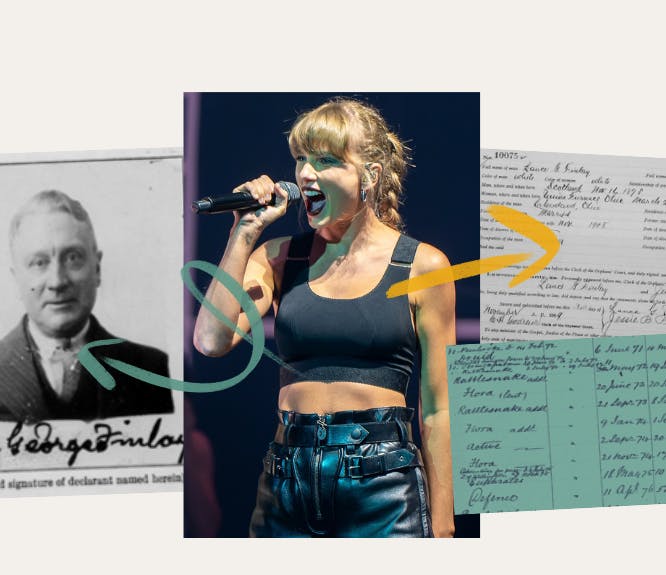
Taylor Swift’s family tree shines with love, heartbreak and the triumph of the human spirit
Discoveries
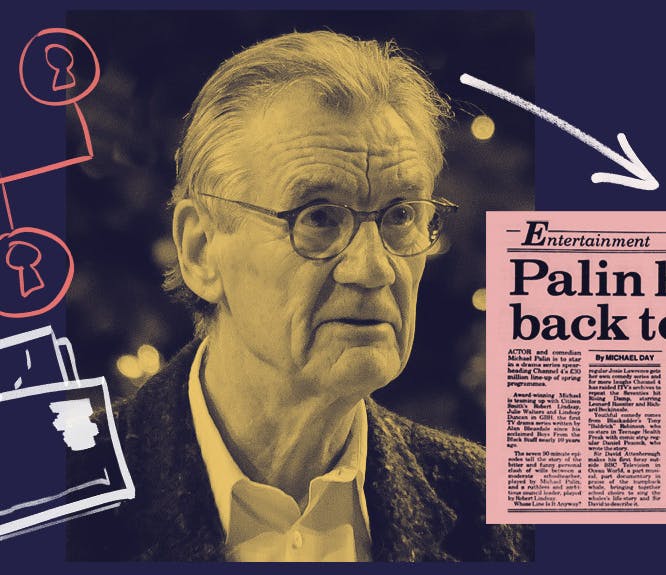
Discover the surprising romances and shadowy figures within Michael Palin's family tree
Discoveries
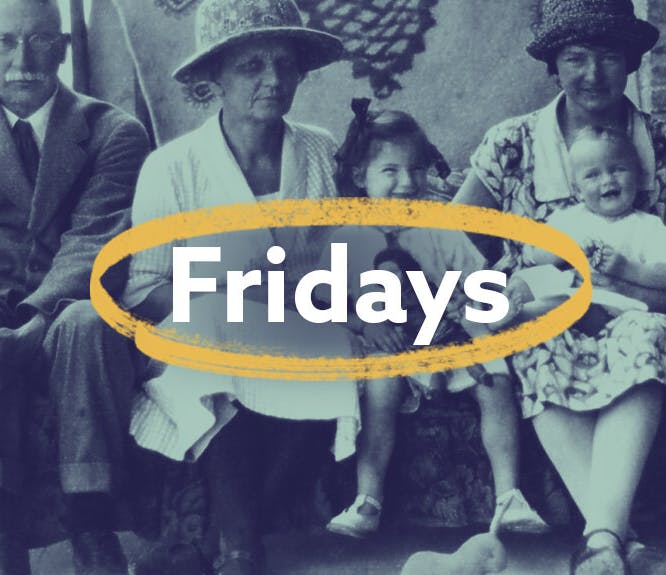
Uncover the lawbreakers and teachers in your family tree
What's New?
